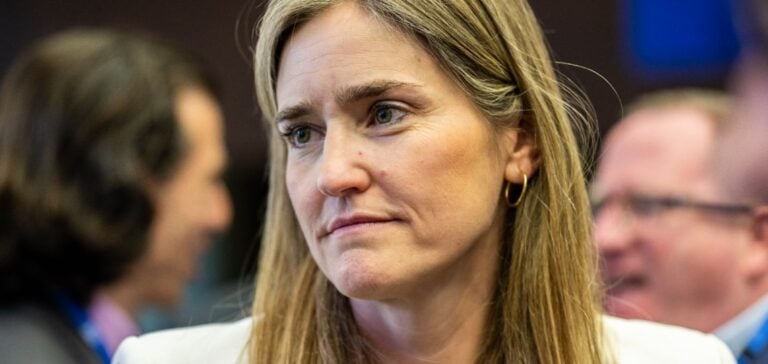The Spanish Secretary of State for Energy, Sara Aagesen, has been chosen to succeed Teresa Ribera at the helm of the Ministry of Ecological Transition. This replacement is part of a reorganization within the Spanish government following the imminent appointment of Ribera to the European Commission. She will occupy the strategic role of Vice President in charge of Ecological Transition and Competition in Ursula von der Leyen’s team.
Sara Aagesen, aged 48, is an engineer who graduated from the Complutense University of Madrid. Since joining the Ministry in 2018 as an advisor, she has played a central role in the country’s energy initiatives. In January 2020, she was appointed Secretary of State for Energy. In this position, she has worked to develop solar and wind energy, which have been growing rapidly in Spain.
A significant appointment for Spain
In addition to her role within the Ministry, Aagesen has distinguished herself internationally. She has represented Spain at several summits under the auspices of the United Nations and contributed to the work of the Intergovernmental Panel on Climate Change (IPCC). Her expertise and commitment are widely acknowledged as she takes on a key portfolio for Spain’s ecological future.
This ministerial change aligns with the booming renewable energy sector in Spain, which strives to maintain its European leadership in the energy transition. However, challenges remain, particularly in managing climate impacts and strengthening green infrastructure.
Teresa Ribera’s departure to the European Commission
Teresa Ribera, an influential figure in Pedro Sánchez’s government, is leaving her position to become Vice President of the European Commission. This appointment was approved through a multiparty agreement in the European Parliament. Her management of climate crises, including recent floods in Spain, had drawn criticism from the opposition. Despite these tensions, she is set to assume a strategic role in shaping European ecological policy.
The final vote by MEPs on her appointment is scheduled for November 27 in Strasbourg. If confirmed, this departure will mark a new chapter in Ribera’s career while positioning Sara Aagesen at the forefront of Spain’s energy and climate challenges.






















